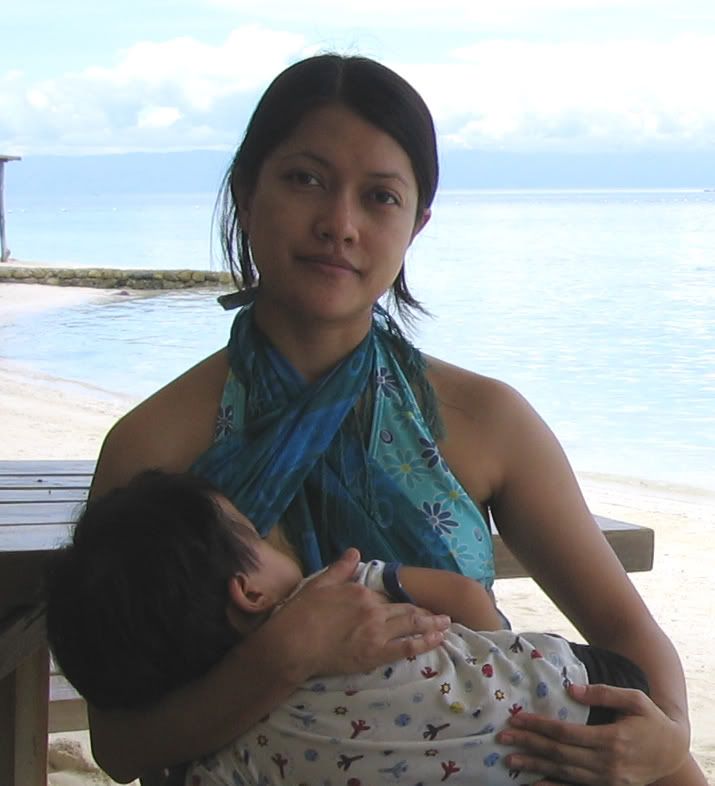In fact, the Supreme Court decision was in favor of the respondent, the Department of Health. The Supreme Court lifted the temporary restraining order on the RIRR -- with a few exceptions -- which means that the RIRR is now in effect. The Supreme Court ruled largely in favor of the Health Department:
"Except Sections 4(f), 11 and 46, the rest of the provisions of the RIRR are in consonance with the objective, purpose and intent of the Mllk Code, constituting reasonable regulation of an industry which affects public health and welfare and, as such, the rest of the RIRR do not constitute illegal restraint of trade nor are they violative of the due process clause of the Constitution."
Sections 4(f) and 11 call for the prohibition of the advertising, promotion or sponsorships of infant formula, breastmilk substitutes and other related products. Section 46 imposes administrative sanctions for the violation of the Milk Code, including fines higher than what the Milk Code originally specified. Unfortunately, media reports have focused on the loss particularly of the provision banning the advertising of breastmilk substitutes.
What the Supreme Court upheld
Other than than these, the rest of the RIRR can now be implemented! And the rest of the RIRR calls for significantly tighter regulation on the marketing of breastmilk sustitutes and related products, most notably:
* The Milk Code's coverage is not limited to children 0-12 months old. Rather the Supreme Court upholds that the Milk Code's scope covers all breastmilk substitutes including those to be used by children aged over 12 months. (The Milk Code defines "breastmilk substitutes" as "any food being marketed or otherwise represented as partial or total replacement of breastmilk whether or not suitable for that purpose.")
* Advertising, promotion or other marketing materials for breastmilk substitutes need to be approved by the Inter-Agency Committee and should not contain, among others, terms like "close to mother's milk", pictures or texts that idealize infant and milk formula. Any health and nutrition claims, false or misleading information or claims of products are prohibited.
* Breastmilk substitutes have to follow labeling requirements, in both English and Filipino, which include a message on the "health hazards of [the use] unnecessary or improper use of infant formula and other related products including information that powdered infant formula may contain pathogenic microorganisms and must be prepared and used appropriately."
* Milk companies are prohibited from giving financial or material inducements or gifts of any sort to promote products to health workers and to any member of the general public. They cannot give donations to the general public, hospitals, health facilities, their personel and members of their families.
* Milk companies are prohibited from conducting or being involved in any activity on breastfeeding promotion, education and production of materials on breastfeeding, or to act as speakers in classes or seminars for women and children's activities, and to use these venues to market their brands or company names. Neither can milk companies have point-of-sale advertising, give away samples and other promotional items, etc. directly to consumers at retail level.
* Milk companies shall not form part of any policymaking body involved in the advancement of breastfeeding.
These are but a few of the "gains" that breastfeeding advocates have obtained through the Supreme Court's ruling. One of my favorite sections in the Milk Code is the little-known and little discussed Section 56, Extending Prohibition for Brandnames and Company Logo Identification. It says, "The Department (of Health) shall periodically review whether or not to allow or prohibit the use of brandnames or company logos of products within the scope of this Code which are similar to the brandnames or logos utilized for products not covered by this Code, including the physical appearance of the container...."
So you see, contrary to what the press has been reporting, we breastfeeding advocates have gained much more than we lost. All in all, the Supreme Court decision was a victory for breastfeeding in the Philippines.
Now we face the work of ensuring the implementation of the RIRR of the Milk Code.
Download the entire Supreme Court decision here:
Download the UNICEF official statement here:
And here's Atty. Ipat Luna's take on the Supreme Court ruling:
http://ipatluna.multiply.com/journal/item/80


